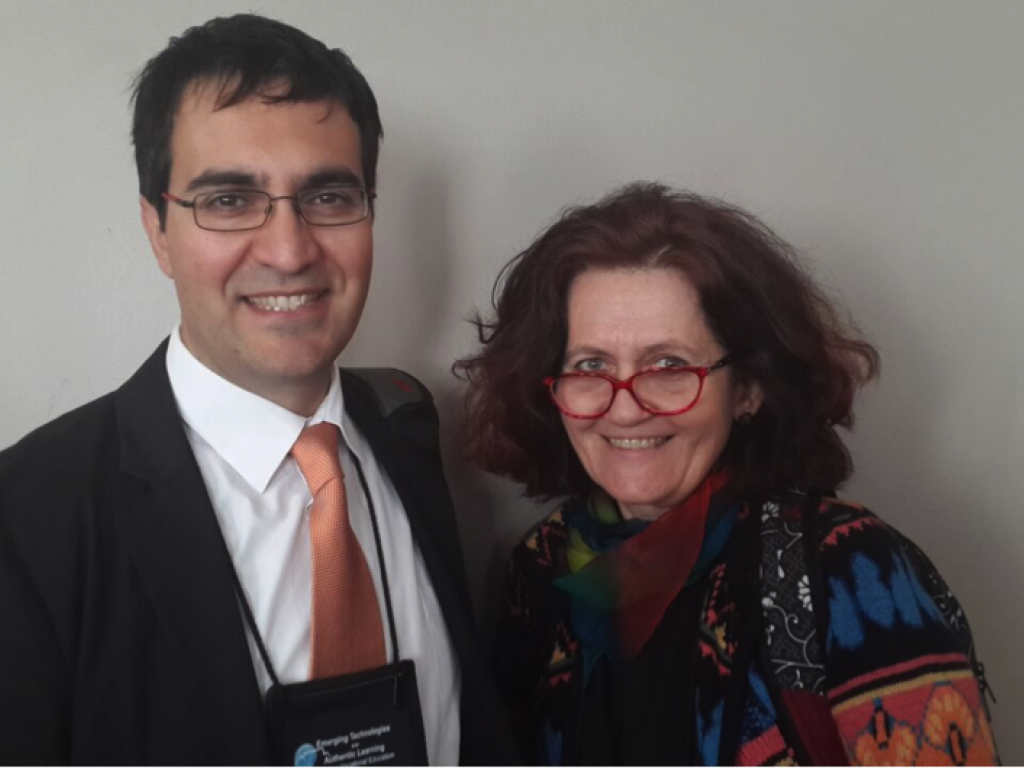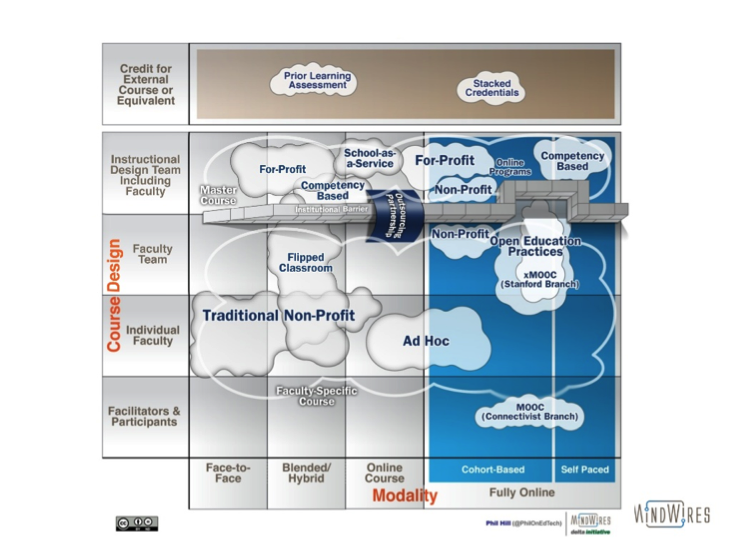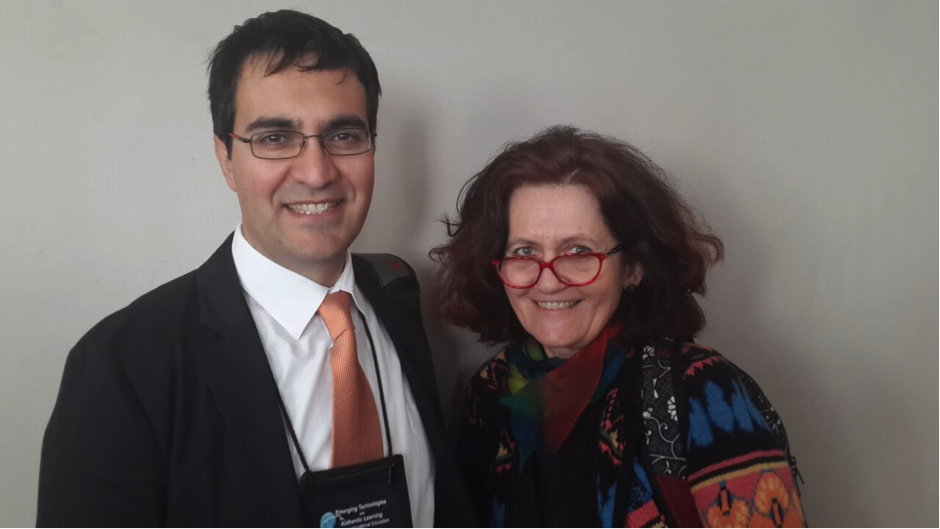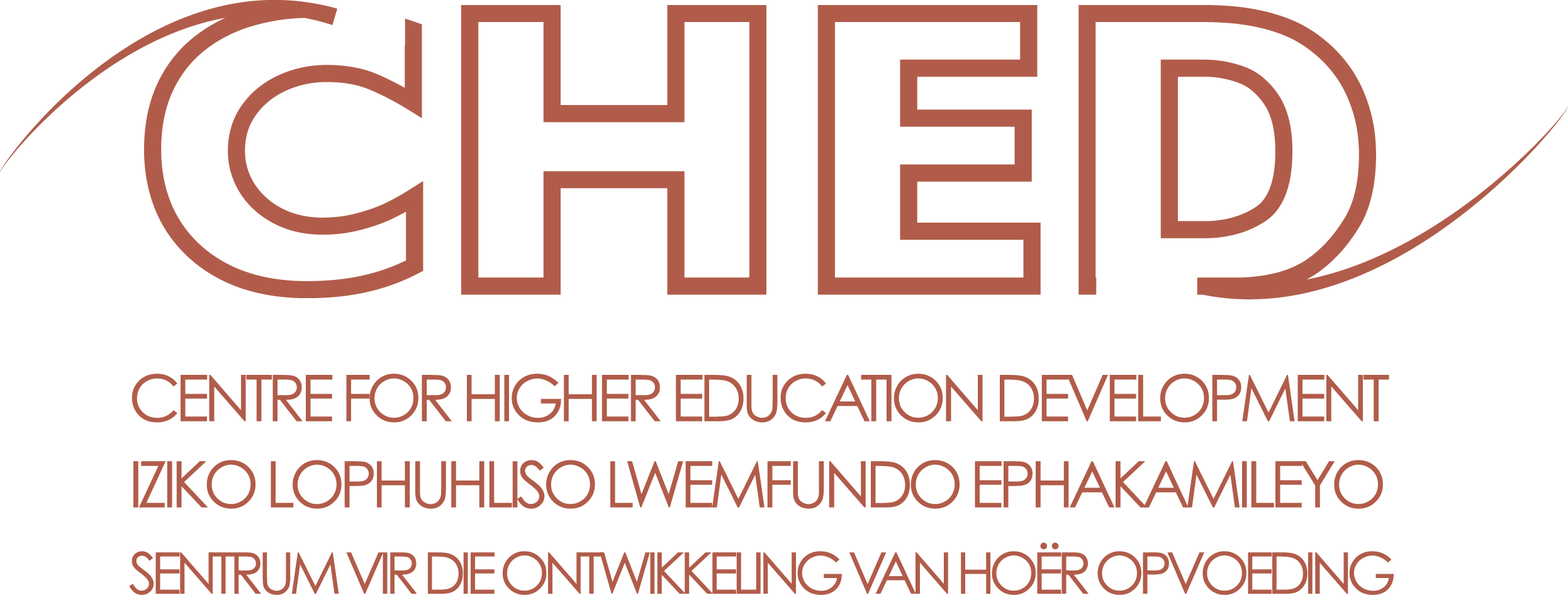Distinguished guests at CILT

by Kyle Rother
The growth of technology in higher educational practice, the globalization of trends in online education, and opportunities for global knowledge sharing were some of the topics discussed by two distinguished guests at CILT’s Learning and Teaching Seminar Series earlier this month.

Image CC-BY-NC Phil Hill and MindWires Consulting
On 7 September, Phil Hill – an educational technology consultant and analyst who has spent the last 14 years advising in online education and educational technology markets – spoke about trends in online and hybrid education, and their implications for educators. As a consultant and analyst, Phil helps higher education institutions develop effective strategies to understand and implement online education programs, and his presentation suggested that as online and hybrid education enter the third decade, there are significant efforts to move beyond the virtualisation of the traditional face-to-face classroom and more towards learner-centric approaches. This shift has the potential to change the discussion of whether online and hybrid approaches “can be as good as” traditional approaches to a discussion of how online and hybrid approaches “can provide better learning opportunities”. His talk explored this long-term trend, several of the drivers enabling the change, and the implications for current and future educators, and concluded with the point that higher education is in the midst of an inflection point driven by mainstream adoption, different platform designs, and going beyond the digitisation of the traditional classroom.
In mapping-out the terrain of online education, Phil emphasized the difficulty of online course design, the need for stronger collaboration between educators and curriculum and course designers, and extra awareness of the particular needs addressed by online courses. Phil noted that despite a strong commitment to the development of educational technology, South Africa faces particular legislative challenges, and the relatively recent emergence of online education in the country means that decisions have been made in short time frames. He highlighted that the globalization of trends presents opportunities for knowledge sharing, and South Africa is well positioned to learn from the examples of others, but we should be cautious of perpetuating the hegemonic nature of higher education in the online space. Online education offers a real opportunity to reach those currently underserved by conventional higher education, and combat inequality, and this, Phil argues, should be the real focus of our activities.
Dr George Veletsianos, Associate Professor and Canada Research Chair in Innovative Learning and Technology at the School of Education and Technology at Royal Roads University, was co-sponsored by CILT in attendance at the Emerging Technologies and Authentic Learning in Higher Vocational Education conference hosted at the GSB from 31 August to 3 September. As well as his presentations at the conference and the Seminar Series, Dr Veletsianos also presented a workshop at CILT, attended CILT’s PGDip class on evaluating and researching emerging technologies, and gave a Q&A session. For his seminar on 8 September, he spoke about emerging scholarly practices in digital spaces by posing the questions: “What do networked scholars do online? What are their habits and what activities do they engage with?” He examined the day-today realities of social media and online networks for scholarship, and illuminated the opportunities, tensions, conflicts, and inequities that exist in these spaces.

Image: Dr George Veletsianos and CILT Director Associate Professor Laura Czerniewicz CC-BY-NC Nicola Pallitt
Although open and networked scholarship were not new concepts to many in attendance, Dr Nicola Pallitt of CILT commented that it is still not a universal trend, especially among African scholars, and this may require more research. When Dr Veletsianos engaged the audience in discussion, many expressed a preference for keeping their personal and professional online presences separate. Marja Wren-Sargent of UCT Libraries Undergraduate Support noted that it’s possible to use different forms of social media to humanize research and research practices.
Dr Veletsianos mentioned that he really appreciated the opportunity of speaking to the postgraduate class. He emphasized that many of the problems that people face in their teaching, and the solutions that they seek – whether technological or otherwise – are common across the world. He personally values these opportunities to learn from others who face similar problems, and to explore solutions for improving education.
CILT Director Associate Professor Laura Czerniewicz commented what a pity it is that Phil and George’s visits could not have overlapped, as she would have welcomed a conversation between them, with their very different perspectives. Phil’s response is that Laura probably just wanted to get them in the same room together to prove that they are not the same person. He also mentioned that Laura’s strong online presence was one of the motivations for his visit, and he really appreciated the opportunity to meet her in person. Commenting on his impressions of Cape Town, Phil echoed the globalized nature of educational trends, observing the geographical similarities between our country and his own, and how familiar much of the landscape felt: “It’s like California with penguins!”
These seminars were an opportunity for CILT to demonstrate the power of strong networks, and the global nature of trends in online education to the wider campus community. They also provided an opportunity for CILT staff to deepen their own discussions, and to engage critically with emerging trends. The power of educational technology goes beyond simply finding solutions to particular teaching problems, to reaching new user groups and addressing societal imbalances, and both speakers commended CILT on the excellent work that they are doing to meet these challenges.
Phil’s presentation slides can be found here: http://www.slideshare.net/PhilHill3/hill-slides-uct-20150707
George’s presentation slides can be found here: http://bit.ly/1UYI2Nr
